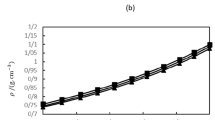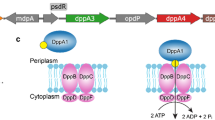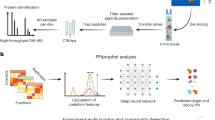Abstract
DIPICOLINIC acid (DPA, pyridine-2,6-dicarboxylic acid) is synthesized during sporogenesis in spore-forming bacteria and excreted during germination as the calcium salt. Heat resistance of spores has long been thought to be associated with the presence of DPA. Church and Halvorson1 reported a quantitative relationship between heat resistance and DPA content in spores. Black et al.2 found that at a concentration of DPA greater than 50 µg/mg dry spores the heat susceptibility appears to remain constant and minimal.
This is a preview of subscription content, access via your institution
Access options
Subscribe to this journal
Receive 51 print issues and online access
$199.00 per year
only $3.90 per issue
Buy this article
- Purchase on SpringerLink
- Instant access to the full article PDF.
USD 39.95
Prices may be subject to local taxes which are calculated during checkout
Similar content being viewed by others
References
Church, B. D., and Halvorson, H., Nature, 183, 124 (1959).
Black, S. H., Hashimoto, T., and Gerhardt, P., Canad. J. Microbiol., 6, 213 (1960).
Author information
Authors and Affiliations
Rights and permissions
About this article
Cite this article
MISHIRO, Y., OCHI, M. Effect of Dipicolinate on the Heat Denaturation of Proteins. Nature 211, 1190 (1966). https://doi.org/10.1038/2111190a0
Issue date:
DOI: https://doi.org/10.1038/2111190a0



